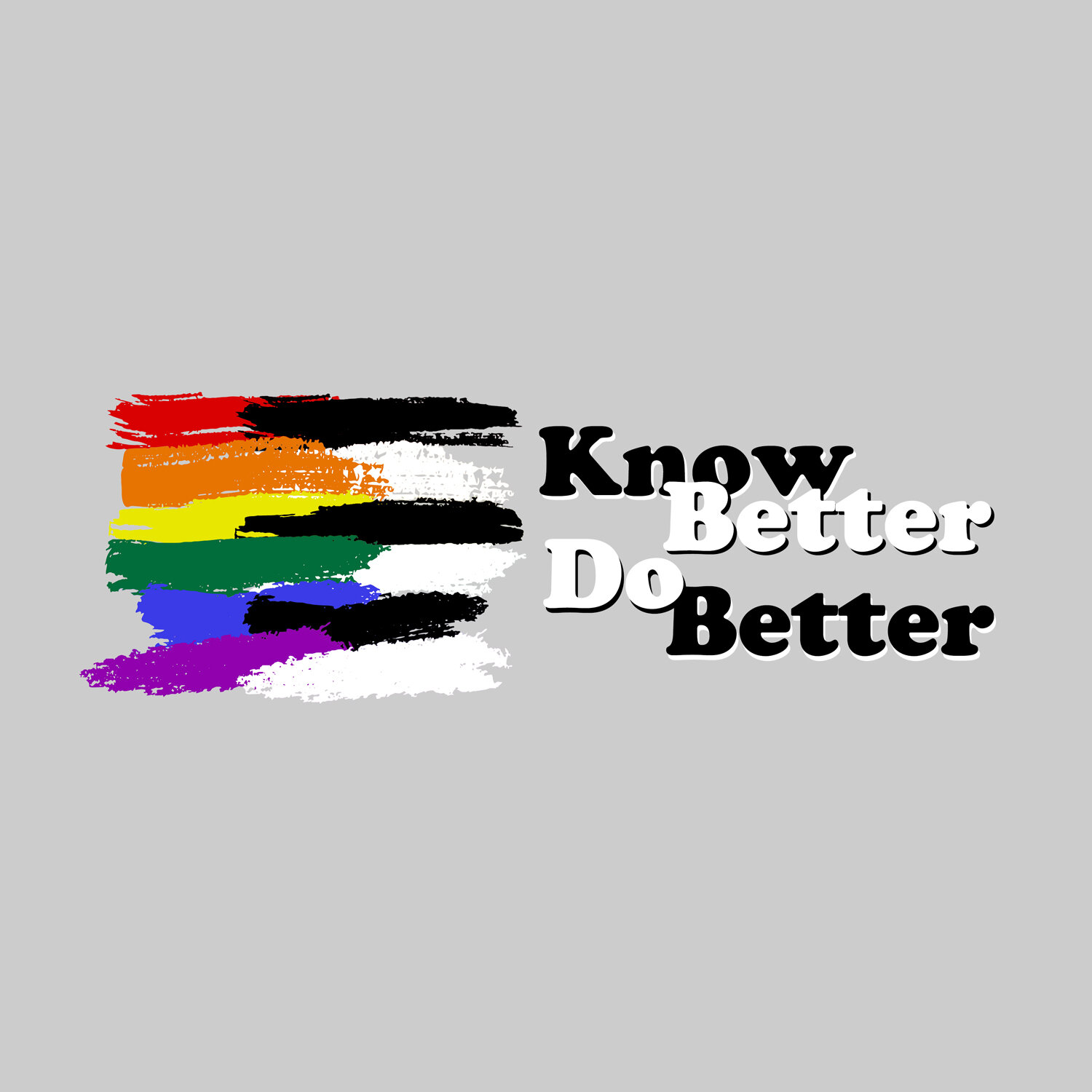
About
Amid the growing awareness of systemic racism in the United States, the Black Lives Matter movement, and the protests responding to the deaths of George Floyd, Breonna Taylor, Elijah McClain and many other African Americans at the hands of police; musicians Olivia Brownlee, Sarah Fard, Tom Smith, Chris Walton and George Woods met several times in the summer and autumn of 2020 to discuss the racism embedded in folk and popular songs, especially those commonly sung for and with children.
Our thinking expanded to acknowledge that some songs also contributed to the systemic oppression of Indigenous people, Asian Americans, Pacific Islanders, LatinX, LGBTQ+ and the disabled.
As a result of our conversations, we gave ourselves the assignment to write alternatives to some of those problematic songs. To share these songs, plus more songs by others, the Know Better Do Better Project was born. The name is inspired by the Maya Angelou quote, “Do the best you can until you know better. Then when you know better, do better.”
Songwriting Process
Here is how we approached the task to create new, non-derivative songs for the Know Better Do Better Project.
Research
We researched the topic, using the sources on our Research page (and others.) Once we each determined a particular song that interested us, we dove a little deeper into the song’s history. Who wrote it and when? Was it ever recorded? Where is it from? How has the song been used over time? Does it have a practical purpose as it is used today, or historically? (e.g., keeping time for laborious group tasks such as rowing/hauling on ships; or jump rope/hand jives on playgrounds; or teaching how to count, etc.)?
Analyze
We then analyzed the songs themselves, considering characteristics like style (meter, arrangement, vocal range etc.), feel (tempo, genre, emotion, etc.), structure (how the lyrics are arranged, rhyme scheme, meter, etc.), memetic values (patterns, what makes it catchy, repetition, cultural importance), themes (the ideas/messages the lyrics convey, such as family, spirituality, work, play, etc.).
Write
Finally, we wrote new non-derivative songs that have similar characteristics as the songs we chose. Each songwriter determined which characteristics are important to them. We agreed that it is not necessary to match all of the characteristics we analyzed. To make it a non-derivative work, our songs do not use the melody of the original.
We encourage music creators of spoken word, hip-hop, instrumental works, or other musical traditions to participate in our project. The process described above is clearly designed for western style music traditions. For other music traditions, you are invited to use any process that is in the spirit of this project. That is, start with a song that has a racist history, use it as a prompt and follow your own process from there.
Our Mission
The Know Better Do Better Project seeks to encourage conversation and awareness of songs that have played a role in sustaining systemic racism, and the writing of new alternative songs. We believe that by facing our music history, creating new songs, and making informed decisions about the songs we choose to sing, we amplify the positive power of music to shape a more just and inclusive world.
Statement of Inclusion
We welcome participation from people of every race, religion, sexual orientation, gender expression/identity and age to create new music that is inclusive and respectful of all Americans. If you are a songwriter who would add racial, ethnic or other kind of diversity or other musical traditions, then you are especially encouraged to participate in the Know Better Do Better Project.
We have a limited number of financial grants available for contributors who would add diversity to our project. If you are interested, please see our community page.
Terms and Conditions, Copyright
By submitting an original song, or using the songs that are part of the Know Better Do Better Project (KBDBP) you agree to the following terms and conditions with respect to ownership, distribution and use of the included songs.
Songwriters retain ownership of their songs.
Songwriters grant permission for the KBDBP to include their songs for worldwide, open access for non-commercial, educational, and personal use in perpetuity. This includes lyrics, music notation, recordings, and other information that accompanies the songs.
Songwriters grant permission for their songs to be performed, played and shared freely for educational and personal purposes, so long as attribution is given to the songwriter(s) and the KBDBP.
Songwriters may record, modify or otherwise exploit and distribute their submitted songs without any obligation to the KBDBP.
Anyone (other than the Songwriter) who wishes to record or redistribute a song in any way and for whatever reason other than educational or personal use, must first obtain written permission from the Songwriter(s).